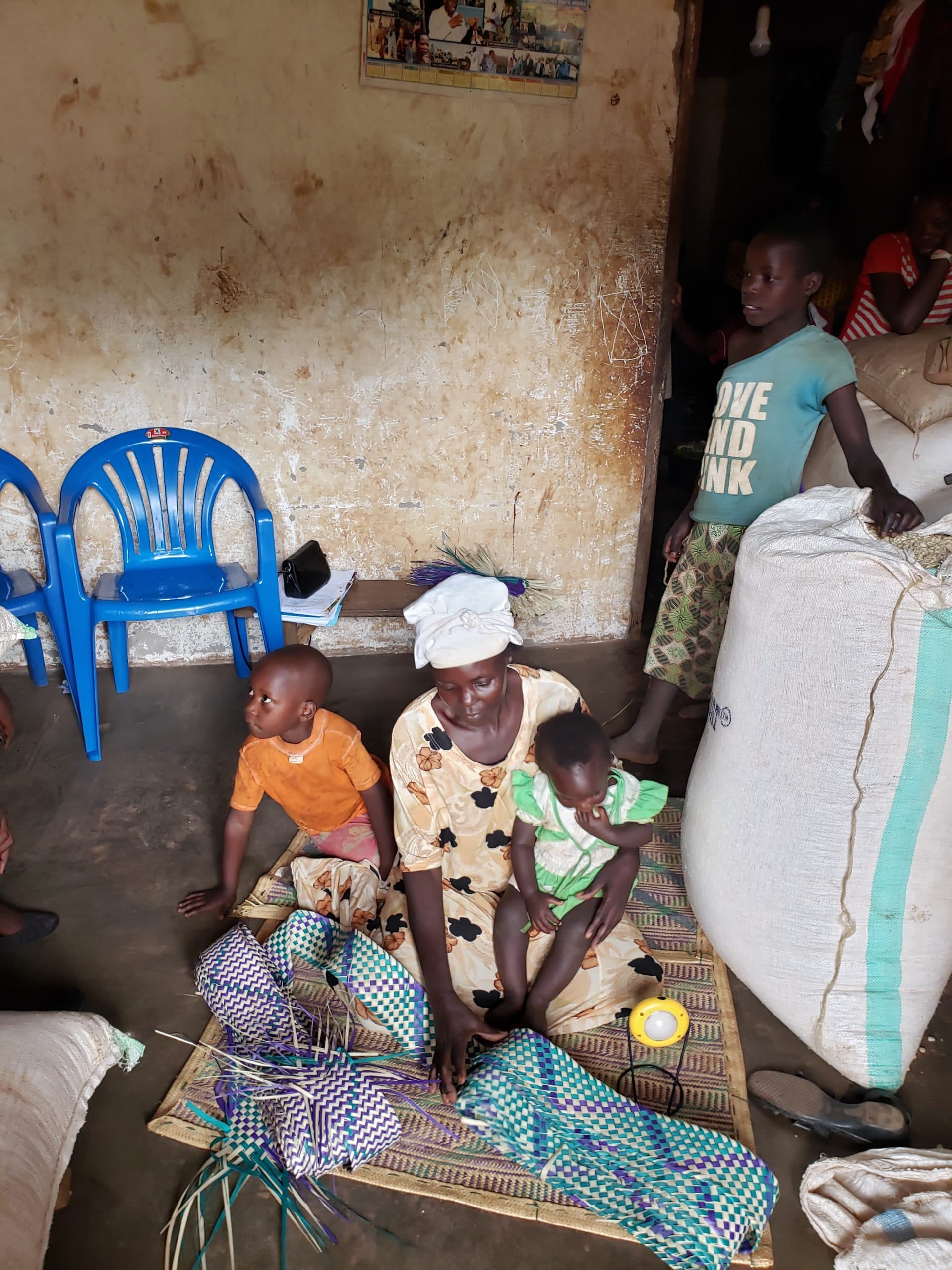Monicca
Monicca is known in her community as Nnalongo, a title of respect earned from giving birth to twins. At 42 and with eight children, she lives in a joint family with her sister, nephews, and nieces. With their husbands no longer in the picture, the sisters share the responsibility of providing for their families
Monicca first heard about Safe Births + Healthy Homes, a pilot program from Let There Be Light International, when she went to the Butemba Health Clinic for prenatal visits. She gave birth to her baby, Mary, after a one-hour journey down a bumpy dirt road by boda boda, a local two-person motorcycle taxi; when she returned to the clinic the following week for her baby’s first set of vaccinations, she gladly took home a solar light and has since thrown away her kerosene lamp.
When using kerosene to light her home before, she lived in constant fear that her mosquito net would catch fire. Her children also complained about health problems such as coughing and itching eyes.
Now with kerosene savings from her solar light, which freed up more than 10% of her budget, she has been able to buy more food for her family and grow her handicraft business. She weaves mats to supplement her income from cultivating maize, beans, and cassava; with the help of the light, she can now weave mats into the night and has doubled her production and revenue.
Monicca proudly declares, “I use the light because it is mine.” She adds, “The children love it very much,” but she makes it clear that she only allows them to use the light when doing homework. Violet, her ten-year-old daughter, is home from school for the afternoon; she shares that her favorite subject is math and she wants to become a nurse. At eleven months, Mary is just learning to walk and Monicca’s eyes twinkle as she shares her high hopes for her baby’s future.
Monicca smiles when she says, “The solar light is helping me support myself as a woman. My light is so good. I’m praying hard that it lasts a long time because I don’t want to go back to using kerosene.”

